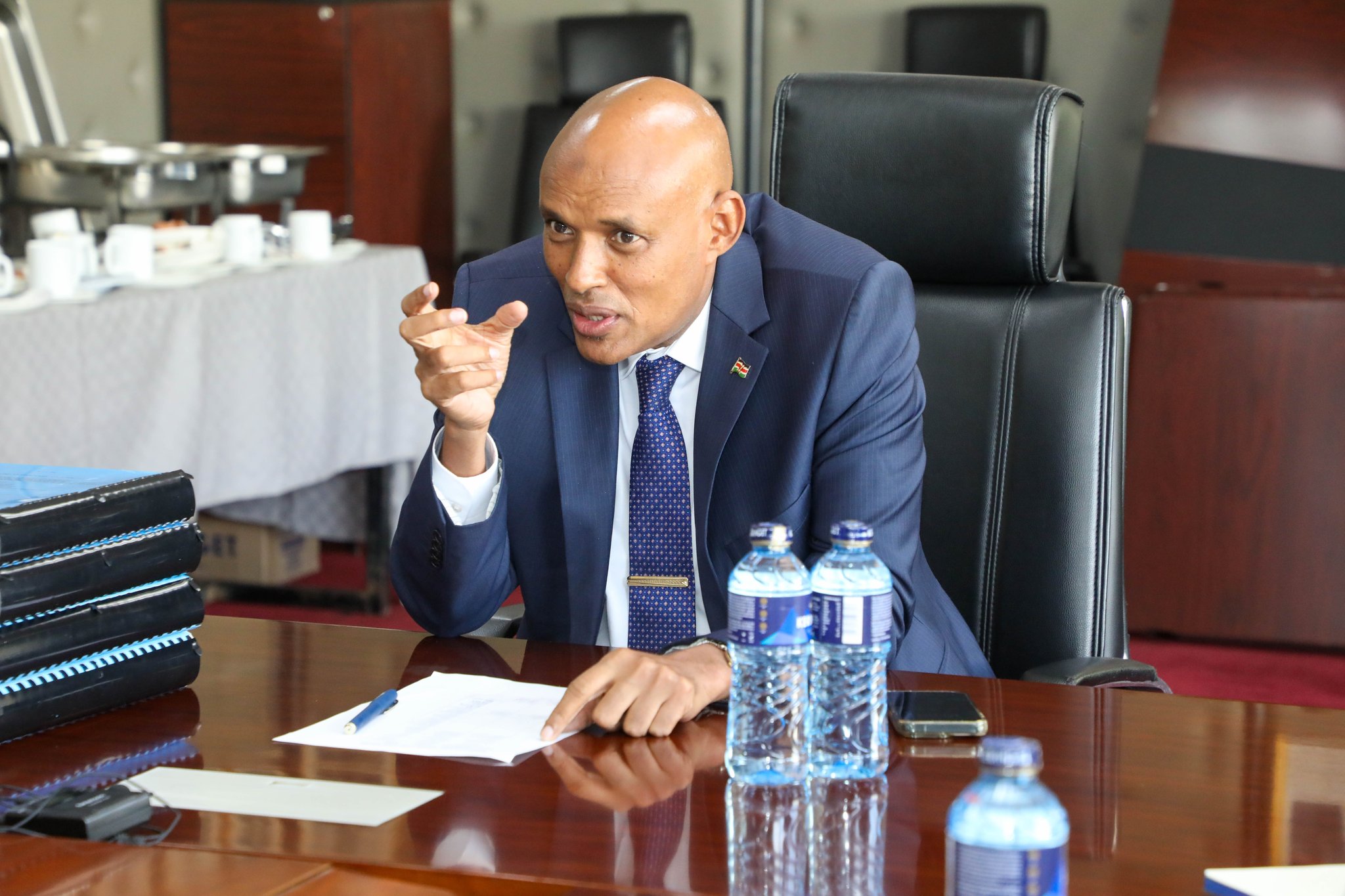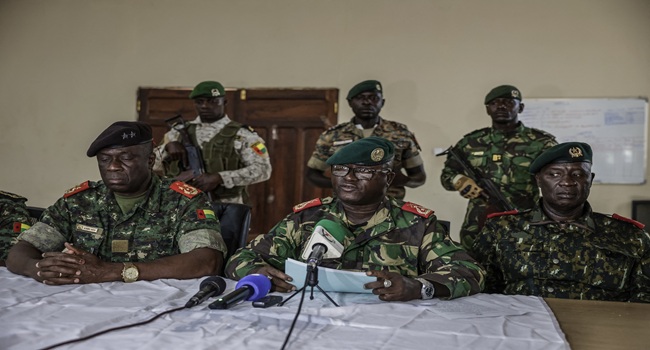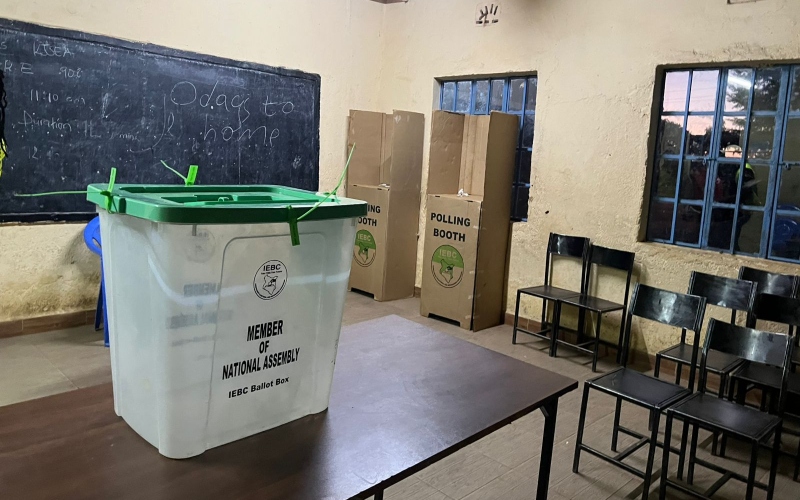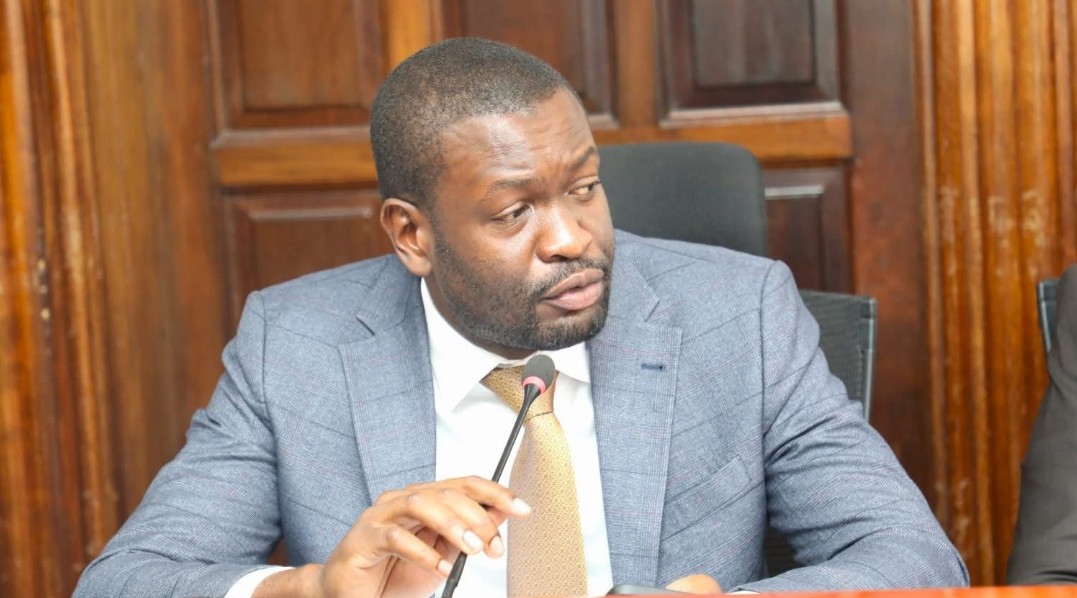Kenya’s refugee population hits 860,000 as State pushes integration plan
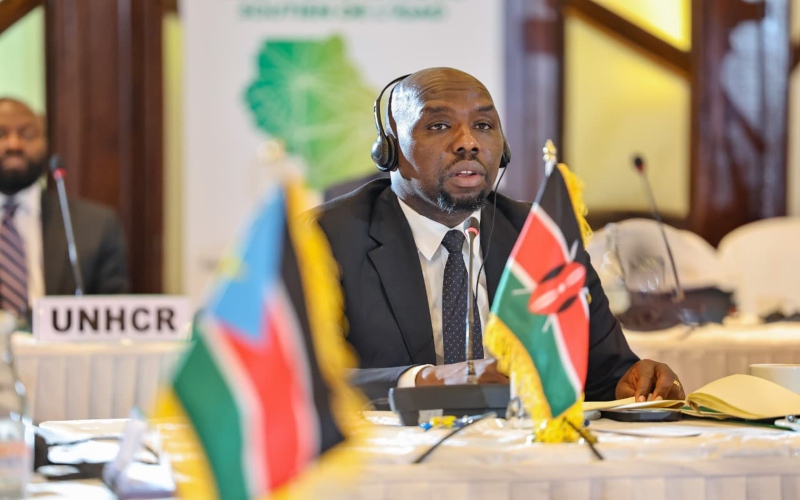
Interior CS Kipchumba Murkomen said the plan paves the way for the transformation of refugee camps into integrated and sustainable settlements.
Refugee numbers in the country have soared to 860,000 even as the State maintains its commitment to the 12-year mega plan of integrating them with host communities by 2035.
Speaking during the opening session of the IGAD support platform for the Global Compact on Refugees (GCR), Interior CS Kipchumba Murkomen said the plan, launched in March this year, that seeks to promote socio-economic empowerment and self-reliance for both refugees and host communities, paves the way for the transformation of refugee camps into integrated and sustainable settlements.
More To Read
- African Commission hails Côte d’Ivoire’s move to protect displaced populations
- Uganda stops granting refugee status to nationals from Ethiopia, Somalia and Eritrea
- IGAD rallies region to tackle deepening displacement crisis amid funding cuts, conflict
- Daua Dam, irrigation masterplan gain momentum after high-level talks in Nairobi
- IGAD leads new push for Peace in Sudan as regional and global partners back three-step plan
- ONLF accuses Ethiopia of breaching 2018 peace deal as Somali Region tensions rise
Central to this agenda, Murkomen explained, is the principle of cooperation, equitable burden and responsibility-sharing.
"Even as we talk about reintegrating refugees, there are children who were born here who call Kenya home, except for the absence of documentation. They have no connection, except through their parents, to the countries they came from. And sometimes, when you tell that person that this is not home, it is extremely difficult," said Murkomen.
He added, "That’s why we really need to go to the core issues: are we really Africa, one continent, one people? Do we truly subscribe to these geographical boundaries such that we cannot take care of our own people born and brought up in our countries as brothers and sisters? The thinking has to shift."
According to the CS, refugees' reintegration with host communities suffers when they feel they will have to compete for scarce resources.
"If we succeed in developing our own countries to the level of those we say we want to take our citizens to go and be reintegrated, then there will be no need for us to say that people have to go to another place," he said.
The meeting in Nairobi comes at a time when global displacement has reached levels never seen before, with more than 122 million people now forcibly displaced worldwide, about six million of whom are from the IGAD region.
Murkomen noted that the speed and scale of forced displacement are outpacing the solutions available, leaving many displaced populations in a prolonged state of limbo, with limited opportunities to rebuild their lives.
"Conflicts within and beyond our borders continue to generate new waves of displacement, while the impacts of climate change further aggravate the situation. These pressures come as economic shocks have strained national capacities and host communities continue to shoulder immense responsibilities," said the CS.
He further called on participants to focus on efforts that ease pressures on host countries, enhance refugee self-reliance, expand access to third-country solutions, and support conditions in countries of origin to enable safe, dignified return.
"These objectives remain as relevant today as they were seven years ago and continue to provide a strong basis for coordinated regional and global action," he added.
Refugee-hosting areas across the IGAD region are grappling with rapid population growth, environmental degradation, and overstretched social services, factors that worsen living conditions for both refugees and host communities.
This, according to the CS, is worsened by recent funding cuts to refugee operations that have reached levels never seen before, leaving host countries in an increasingly precarious position and threatening the progress made in previous years.
"As we meet today to take stock, it is essential that we honestly assess whether we are truly meeting the ambitious objectives we set for ourselves. Kenya stands ready to continue working with IGAD Member States and all stakeholders to advance this shared agenda and ensure that no refugee and no host community is left behind," he said.
He, however, noted that the success of such initiatives depends on predictable, sustainable, and well-coordinated support from the international community.
"The Government of Kenya remains firmly committed to expanding the protection space, even as we call upon our partners to reciprocate through genuine burden sharing, not burden shifting. The challenges before us are complex, but with unity of purpose, sustained collaboration, and strengthened regional mechanisms under IGAD’s leadership, we can deliver meaningful and lasting change," added Murkomen.
Top Stories Today



